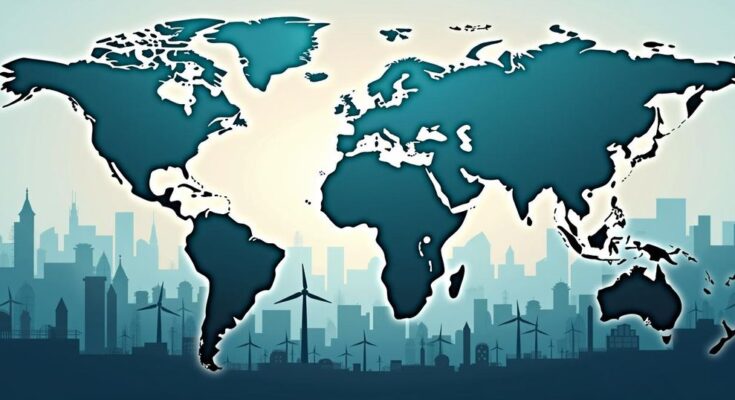Chinese firms have invested over $100 billion in overseas cleantech projects since 2023, driven by U.S., Canadian, and EU tariffs. This investment strategy aims to maintain global market dominance in electric vehicles, lithium batteries, and solar panels, while avoiding heavy trade barriers. Chinese officials warn that tariff imposition could hinder global climate efforts, complicating the international landscape surrounding cleantech advancement.
Since the beginning of 2023, Chinese firms have committed over $100 billion to overseas clean technology initiatives. This surge in investment aims to mitigate the impact of trade tariffs enacted by the United States, Canada, and the European Union. As a result, China continues to assert control over a substantial portion of the global market for electric vehicles, lithium batteries, and solar panels, maintaining its status as a leader in these critical sectors. Specifically, Chinese manufacturers currently account for 32.5% of the global exports of electric vehicles, 24.1% of lithium battery exports, and an impressive 78.1% of solar panel market share. The creation of foreign manufacturing facilities is a strategic response to the trade barriers imposed by Western nations. For instance, the United States and Canada have instituted 100% tariffs on electric vehicles produced in China, while solar panels and lithium batteries face tariffs of 50% and 25%, respectively. In light of this, Chinese firms are proactively pursuing international investments to sidestep these financial hurdles. As articulated by Xuyang Dong, an analyst with Climate Energy Finance, “The investments from Chinese private companies are largely driven by the need to circumvent trade barriers.” Notable firms such as BYD and CATL are hinting at a strategic pivot to avoid these tariffs. BYD is establishing a $1 billion manufacturing facility in Turkey to avert the potential burden of a 40% tariff from the EU, while CATL is expanding its presence with new factories in Germany and Hungary. Looking towards the future, a report from the Grantham Institute projects that two-thirds of China’s clean technology capacity will surpass domestic demand by the year 2030, compelling the nation to seek additional export markets for its products. With solar production capacity potentially reaching 860 gigawatts by that time, the stakes are high. Chinese officials have voiced concerns regarding the imposition of tariffs, asserting that such measures may impede global efforts to combat climate change. Liu Zhenmin, a senior climate envoy for China, warned that “Decoupling from Chinese manufacturing could raise the global energy transition bill by 20%.” This situation underscores the intricate dynamics between international trade policies, competitive market forces, and the overarching objectives of global climate initiatives.
The article examines China’s significant investment in overseas cleantech projects, highlighting its strategic responses to trade barriers from Western nations. By emphasizing the current global market dominance of Chinese companies in sectors vital to clean energy, it provides insight into their efforts to sustain and enhance this position amidst challenging trade conditions. The implications of these investments extend beyond mere economic activities, influencing global climate strategies and sustainability efforts.
China’s strategic investments of over $100 billion in international clean technology projects since 2023 underscore its efforts to navigate and mitigate the impact of stringent trade tariffs imposed by Western countries. As the nation maintains substantial control over the global market for electric vehicles, lithium batteries, and solar panels, its actions are poised to significantly influence both international trade and global climate change initiatives. The ongoing tensions and strategic maneuvers highlight the critical interplay between market dynamics and environmental goals, emphasizing the need for cooperative approaches to tackle climate challenges.
Original Source: esgnews.com




